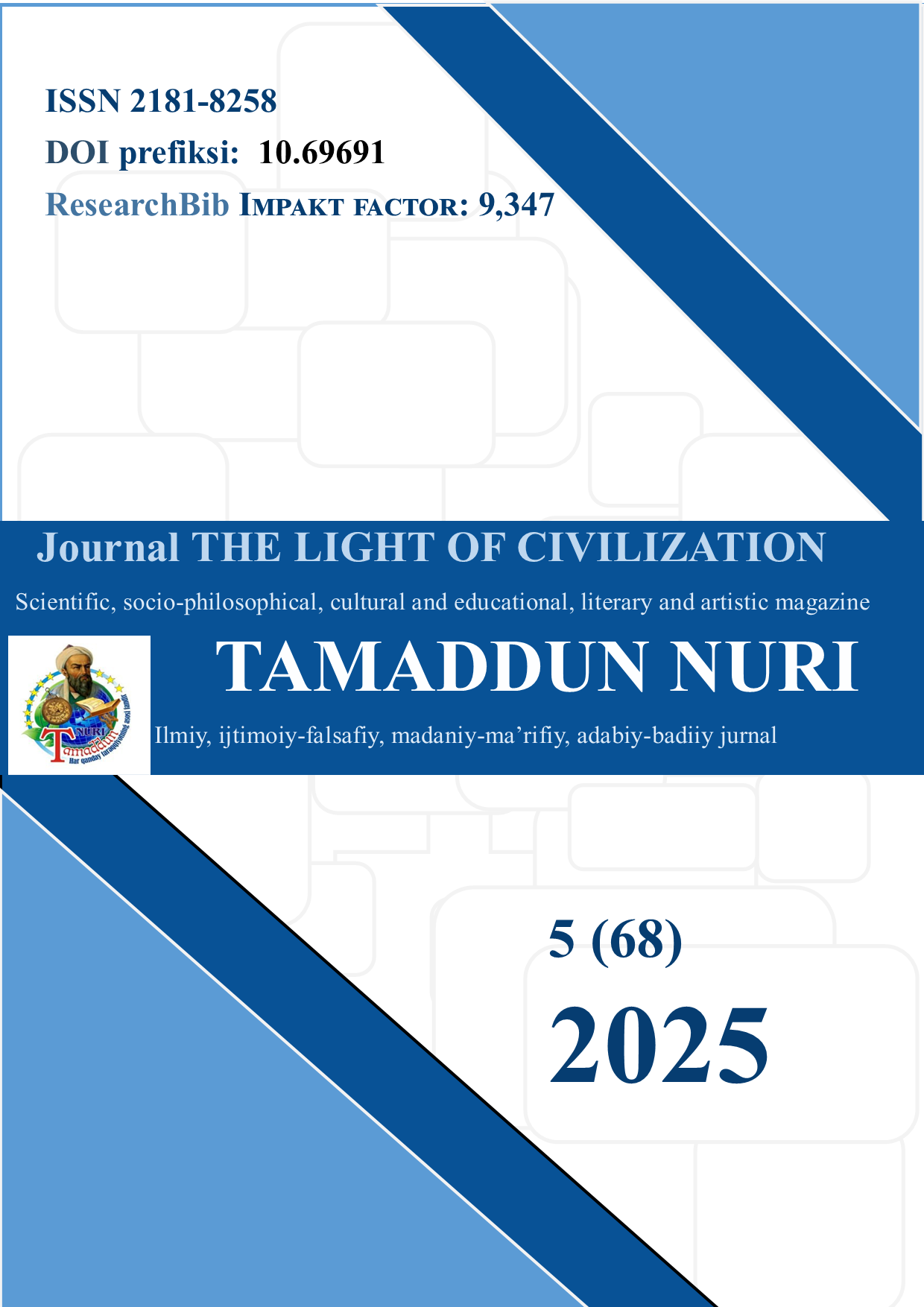IMPACT OF DIGITAL EDUCATION ON HUMAN COGNITIVE ABILITY
DOI:
https://doi.org/10.69691/wff0cg91Keywords:
digital education, cognitive abilities, memory, attention, creative thinking, educational technologies, information overload.Abstract
The article examines the impact of digital education on human cognitive abilities such as memory, attention, and thinking. The results of a study conducted among students who studied using digital technologies and traditional methods are presented. The advantages of digital education, including the development of short-term memory and creative thinking, as well as its disadvantages, such as decreased long-term memory and concentration, are revealed. The conclusion is made about the need for a balanced use of digital and traditional approaches to improve the effectiveness of learning.
References
“Raqamli O‘zbekiston – 2030” strategiyasi. https://lex.uz/uz.
O‘zbekiston Respublikasi Prezidenti Shavkat Mirziyoyevning Oliy Majlisga Murojaatnomasi. 2020-yil 24-yanvar. uz.u.
Gere Ch. Digital Culture. Expended second edition London, 2008, - p. 13-14.
Соколова Н.Л. Цифровая культура или культура в цифровую эпоху // Научный журнал Санкт-Петербургского отделения Российского института культурологии. 3(8). 2012. С. 6-10.
Югай Е.В. Социально-философский анализ развития цифровой культуры в Узбекистане // Автореферата диссертации доктора философии (PhD) по философским наукам. Самарканд, 2022. – С. 48.
Sultanova G.S. Raqamli ta’lim va inson muammosi // Ҳозирги замон фалсафасининг долзарб масалалари: муаммо ва ечимлар Мавзусидаги халқаро илмий-амалий конфренция материаллари. Тошкент, 2024. – Б. 113-115.
Downloads
Published
Issue
Section
License
Copyright (c) 2025 Journal of Tamaddun Nuri

This work is licensed under a Creative Commons Attribution-NoDerivatives 4.0 International License.



